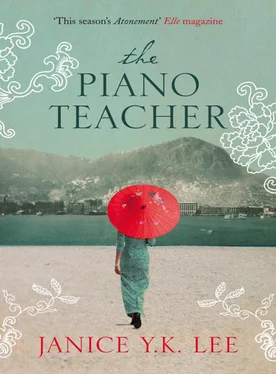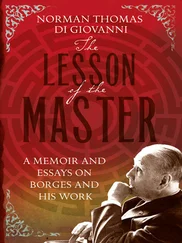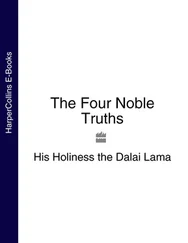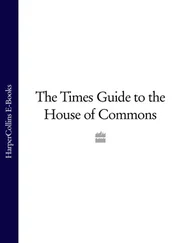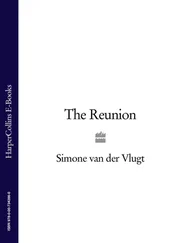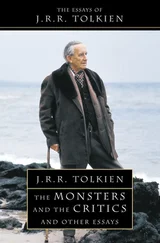Trudy has a body like a child’s – all slim hips and tiny feet. She is flat as a board, her breasts not even buds. Her arms are as slender as her wrists, her hair a sleek, smoky brown, her eyes wide and Western, with the lid-fold. She wears form-fitting sheaths, sometimes the qipao , slim tunics, narrow trousers, always flat silk slippers. She wears gold or brown lipstick, wears her hair shoulder-length, straight, and has black, kohl-lined eyes. She looks nothing like any of the other women at events – with their blowsy, flowing, floral skirts, carefully permanent-waved hair, red lipstick. She hates compliments – when people tell her she’s beautiful, she says instantly, ‘But I have a moustache!’ And she does, a faint golden one you can see only in the sun. She is always in the papers although, she explains, that’s more because of her father than because she is beautiful. ‘Hong Kong is very practical in that way,’ she says. ‘Wealth can make a woman beautiful.’ She is often the only Chinese at a party, although she says she’s not really Chinese – she’s not really anything, she says. She’s everything, invited everywhere. Cercle Sportif Français, the American Country Club, the Deutsche Garten Club, she is welcome, an honorary member of everything.
Her best friend is her second cousin Dommie, Dominick Wong, the man from the races. They meet every Sunday night for dinner at the Gripps, and gossip over what transpired at the parties over the weekend. They grew up together. Her father and his mother are cousins. Will is starting to see that everyone in Hong Kong is related in one way or another – everyone who matters, that is. Victor Chen, Trudy’s other cousin, is always in the papers for his business dealings, or he and his wife, Melody, are smiling out from photographs in the society pages.
Dominick is a fine-chiselled boy-man, a bit effeminate, with a long string of lissome, dissatisfied girlfriends. Will is never invited to Trudy’s dinners with Dommie. ‘Don’t be cross. You wouldn’t have fun,’ she says, trailing a cool finger over his cheek. ‘We chatter away in Shanghainese and it would be so tedious to have to explain everything to you. And Dommie’s just about a girl anyway.’
‘I don’t want to go,’ he says, trying to keep his dignity.
‘Of course you don’t, darling.’ She laughs. She pulls him close. ‘I’ll tell you a secret.’
‘What?’ Her jasmine smell brings to mind the waxy yellow flower, her skin as smooth, as impermeable.
‘Dommie was born with eleven fingers. Six on the left hand. His family had it removed when he was a baby, but it keeps growing back! Isn’t that the most extraordinary thing? I tell him it’s the devil inside. You can keep pruning it, but it’ll always come back,’ she whispers. ‘Don’t tell a soul. You’re the first person I’ve ever told! And Dominick would have my head if he knew! He’s quite ashamed of it!’
Hong Kong is a village. At the RAF ball, Dr Richards was found in the linen room at the Gloucester with a chambermaid; at the Sewells’ dinner party, Blanca Morehouse had too much to drink and started to take off her blouse – you know about her past, don’t you? Trudy, his very opinionated and biased guide to society, finds the English stuffy, the Americans tiresomely earnest, the French boring and self-satisfied, the Japanese horrible. He wonders aloud how she can stand him. ‘Well, you’re a bit of a mongrel,’ she says. ‘You don’t belong anywhere, just like me.’
He had arrived in Hong Kong with just a letter of introduction to an old family friend, and has found himself defined, before he has done anything to define himself, by a chance meeting with a woman who asks nothing of him except to be with her.
People talk about Trudy all the time – she is always scandalizing someone or other. They talk about her in front of him, to him, as if daring him to say something. He never gives anything away. She came down from Shanghai, where she spent her early twenties in Noël Coward’s old suite at the Cathay, and threw lavish parties on the roof terrace. She is rumoured to have fled an affair there, an affair with a top gangster who became obsessed with her; she is rumoured to have spent far too much time in the casinos, rumoured to have friends who are singsong girls, rumoured to have sold herself for a night, rumoured to be an opium addict. She is a lesbian. She is a radical. She assures him that almost none of these rumours are true. She says Shanghai is the place to be, that Hong Kong is dreadfully suburban. She speaks fluent Shanghainese, Cantonese, Mandarin, English, conversational French and a smattering of Portuguese.
In Shanghai, she says, the day starts at four in the afternoon with tea, then drinks at the Cathay or someone’s party, then dinner of hairy crab and rice wine if you’re inclined to the local, then more drinks and dancing, and you go and go, the night is so long, until it’s time for breakfast – eggs and fried tomatoes at the Del Monte. Then you sleep until three, have noodles in broth for the hangover, and get dressed for another round. Such fun. She’ll go back one of these days, she says, as soon as her father will let her.
The Biddles hire a cabana at the Lido in Repulse Bay and invite them for a day at the beach. There, they all smoke like mad and drink gimlets while Angeline complains about her life. Angeline Biddle is an old friend of Trudy’s, a small and physically unappealing Chinese woman whom she’s known since they were at primary school together. She married a very clever British businessman, whom she rules with an iron fist, and has a son away at school. They live in grand style on the Peak, where Angeline’s presence causes some discomfort as Chinese are supposed to have permission to live there, except for one family, so rich they are exempt from the rules. There is a feeling, Trudy explains to Will later, that Angeline has somehow pulled a fast one on the British who live there, and she is resented for it, although Trudy admits that Angeline is hardly the most likeable of people to begin with. In the sun, Trudy takes off her top and sunbathes, her small breasts glowing pale in contrast to the rest of her.
‘I thought you said a tan was vulgar,’ he says.
‘Shut up,’ she says.
He hears her talking to Angeline: ‘I’m just wild about him,’ she says. ‘He’s the most stern, solid person I’ve ever met.’ He supposes she is talking about him. People are not as scandalized as one might think. Simonds admits he was wrong about her.
The Englishwomen in the colony are disappointed: another bachelor taken off the market. Whispered, ‘She did swoop down and grab him before anyone even knew he was in town.’
For him, there have been others, of course – the missionary’s daughter in New Delhi, always ill and wan, though beautiful; the clever, hopeful spinster on the boat over from Penang – the women who say they’re looking for adventure but who are really looking for husbands. He’s managed to avoid the inconvenience of love for quite some time, but it seems to have found him in this unlikely place.
Women don’t like Trudy. ‘Isn’t that always the case, darling?’ she says, when, indiscreetly, he asks her about it. ‘And aren’t you a strange one for bringing it up?’ She chucks him under the chin and continues making a jug of gin and lemonade. ‘No one likes me,’ she says. ‘Chinese don’t because I don’t act Chinese enough, Europeans don’t because I don’t look at all European, and my father doesn’t like me because I’m not very filial. Do you like me?’
He assures her he does.
‘I wonder,’ she says. ‘I can tell why people like you. Besides the fact that you’re a handsome bachelor with mysterious prospects, of course. They read into you everything they want you to be. They read into me all that they don’t like.’ She dips her finger into the mix and brings it out to taste. Her face puckers. ‘Perfect,’ she says. She likes it sour.
Читать дальше
